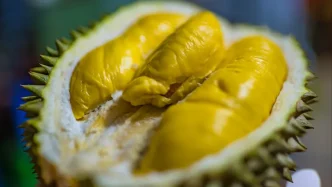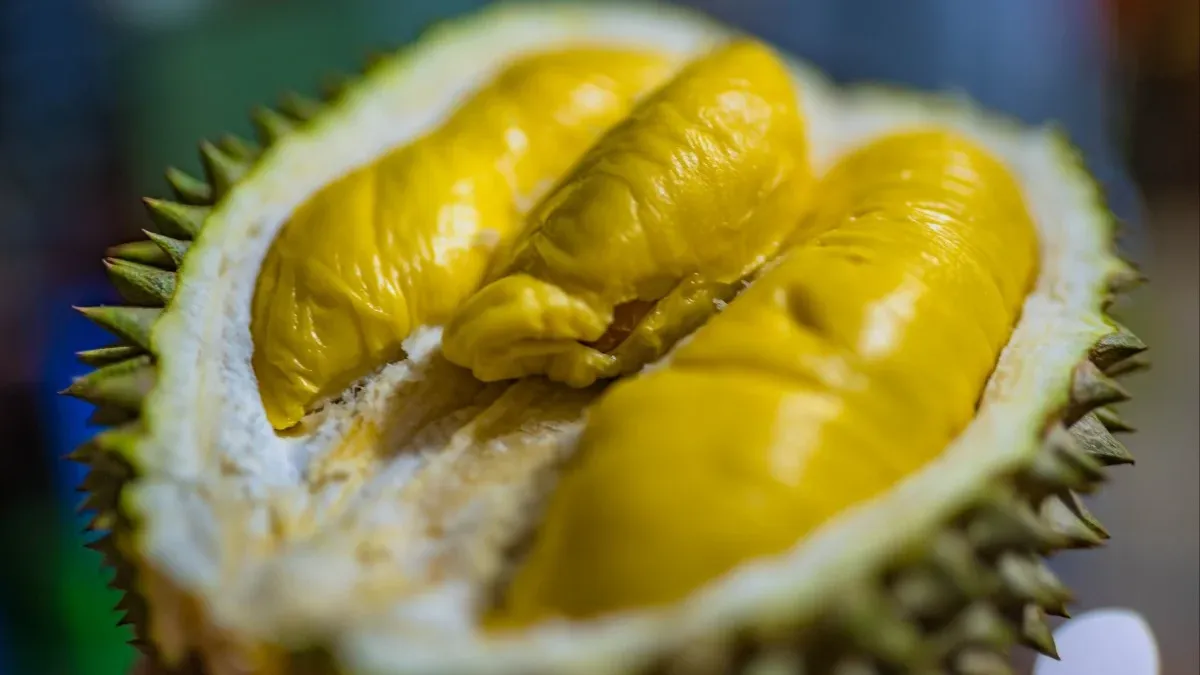In the bustling markets of Petaling Jaya, a suburb of Kuala Lumpur, the unmistakable aroma of durian fills the air. Known as the “king of fruits” for its potent scent and divisive taste, durian has long been a cultural icon in Malaysia. Now, it is becoming a cornerstone of the nation’s agricultural economy, with the government and industry stakeholders pushing to diversify varieties and capture a growing international market. As global demand surges—particularly in China—Malaysia is positioning itself as a durian superpower, blending tradition with innovation to meet the appetites of enthusiasts worldwide.
A Fruitful Ambition
Malaysia’s durian industry is undergoing a transformation, driven by a strategic focus on premium varieties and export expansion. The Musang King, renowned for its rich, creamy texture and intense flavor, has long dominated the market, often fetching top prices abroad. However, the Agriculture Department is now championing lesser-known varieties such as Black Thorn, Red Prawn, and Hajah Hasmah, aiming to broaden the country’s offerings. According to Datuk Nor Sam Alwi, director-general of the Agriculture Department, these varieties are under evaluation for export readiness based on taste, texture, shelf life, and suitability for long-distance shipping. “These efforts are in line with our goal of diversifying Malaysia’s durian varieties in the global market and maximizing export value” she told a local outlet.
The push for diversification comes as consumer preferences evolve. The Malaysian Agricultural Research and Development Institute (Mardi) notes a growing appetite for unique flavor profiles among durian enthusiasts. Beyond premium types, older, more affordable clones like D24 and Tekka are seeing renewed interest for their classic characteristics. Even regional favorites and specific kampung (village) durians with distinctive traits are gaining traction, reflecting a broader curiosity among buyers both at home and abroad.
Export Growth and China’s Appetite
Malaysia’s durian exports are booming, with 54,374 tonnes shipped in 2023, valued at 1.51 billion Malaysian Ringgit (US$320 million). China, the largest market, accounted for over 45.7% of this total, a figure expected to rise following recent approvals for fresh durian imports. Chinese consumers, in particular, are willing to pay premium prices for high-quality varieties, a trend that has spurred Malaysia to refine its export strategies. The Federal Agricultural Marketing Authority (Fama) is working to expand market access beyond China and Hong Kong to countries including the United Kingdom, Canada, the United Arab Emirates, Australia, and the Netherlands.
Fama’s director-general, Abdul Rashid Bahri, emphasized the agency’s multifaceted approach to strengthening Malaysia’s competitive edge. “We are participating in trade fairs, forming digital marketplace partnerships, and collaborating with Malaysian embassies for awareness programs” he said. Additionally, the Ministry of Agriculture and Food Security is enhancing national branding through certifications like “Malaysia’s Best,” which assures quality and safety for both domestic and international standards. Such initiatives aim to build credibility in premium markets, ensuring that Malaysian durians stand out on the global stage.
Innovation in the Orchard
At the heart of Malaysia’s durian strategy lies innovation. Mardi is spearheading efforts to develop new hybrids tailored for domestic and international markets. The MDUR series, a set of hybrid durian clones, has shown particular promise. Among them, MDUR 88—recently rebranded as “MARDI Super 88” (MS88)—stands out for its golden-yellow flesh, creamy texture, and a flavor often compared favorably to Musang King. Mardi is optimistic about its export potential, with the Agriculture and Food Security Ministry actively promoting it abroad.
Other hybrids, such as MDUR 78 and MDUR 79, offer improved yields and resistance to common durian diseases like root borers and stem canker. Mardi’s breeding programs, dating back to the late 1980s, have involved crosses between numerous varieties, with several promising hybrids now in the final stages of assessment. Under the 13th Malaysia Plan, these new varieties are expected to be introduced, further expanding the country’s durian portfolio. “While Musang King and Black Thorn continue to set the benchmark, we believe our hybrids have the quality to compete internationally” Mardi stated.
Scaling Up Production
The surge in global demand has fueled a significant expansion in Malaysia’s durian cultivation. Data from the Agriculture Department shows that the area under durian cultivation grew from 70,286 hectares in 2019 to a projected 92,129 hectares in 2024. Production has followed suit, rising from 390,635 tonnes in 2020 to an estimated 568,852 tonnes this year, despite occasional setbacks due to weather and rising costs. This growth reflects not only market opportunities but also the dedication of Malaysian farmers, many of whom have cultivated durian for generations.
Ensuring that this increased production meets international standards is a priority. The Agriculture Department is focusing on compliance with phytosanitary requirements of importing countries, implementing measures such as vapor heat treatment for pest disinfestation, traceability systems, and farm export certification schemes. These steps are critical to maintaining Malaysia’s reputation as a reliable supplier, particularly in markets with stringent import regulations.
Challenges on the Horizon
Despite the optimism surrounding Malaysia’s durian industry, challenges remain. Weather fluctuations, a perennial concern for agriculture, can impact yields and quality. Rising production costs—driven by labor, fertilizers, and logistics—also pose hurdles, especially for small-scale farmers who form the backbone of the industry. Additionally, while China’s market dominance offers stability, over-reliance on a single buyer could expose Malaysia to risks if demand or policies shift unexpectedly.
Competition from other durian-producing countries, such as Thailand and Vietnam, adds another layer of complexity. Thailand, in particular, has long been a major player in the global durian trade, often outpacing Malaysia in volume. To stay ahead, Malaysia must continue to differentiate its offerings through quality, branding, and innovation. Fama’s efforts to diversify export destinations are a step in the right direction, but sustained investment in research and infrastructure will be essential to maintain momentum.
A Cultural and Economic Asset
Beyond economics, durian holds a special place in Malaysian culture. Often described as an acquired taste, the fruit evokes strong emotions—loved by some, loathed by others. Its presence at family gatherings, festivals, and roadside stalls underscores its role as a unifying symbol, even as it becomes a global commodity. For many farmers, growing durian is not just a livelihood but a way of life, steeped in tradition and pride.
The government’s push to elevate lesser-known varieties also carries cultural significance. By promoting regional and kampung durians, Malaysia is preserving agricultural heritage while adapting to modern market demands. This balance between tradition and progress is evident in the meticulous care given to developing hybrids like MARDI Super 88, which aim to honor the fruit’s legacy while appealing to contemporary palates.
Looking Ahead
As Malaysia’s durian industry continues to flourish, questions linger about how it will navigate the complexities of global trade and local challenges. Can the country sustain its growth without compromising quality or cultural roots? Will new hybrids like MARDI Super 88 capture the same reverence as Musang King? For now, the scent of opportunity is as strong as the fruit itself, with Malaysia poised to carve out a lasting legacy in the world of durian.
















